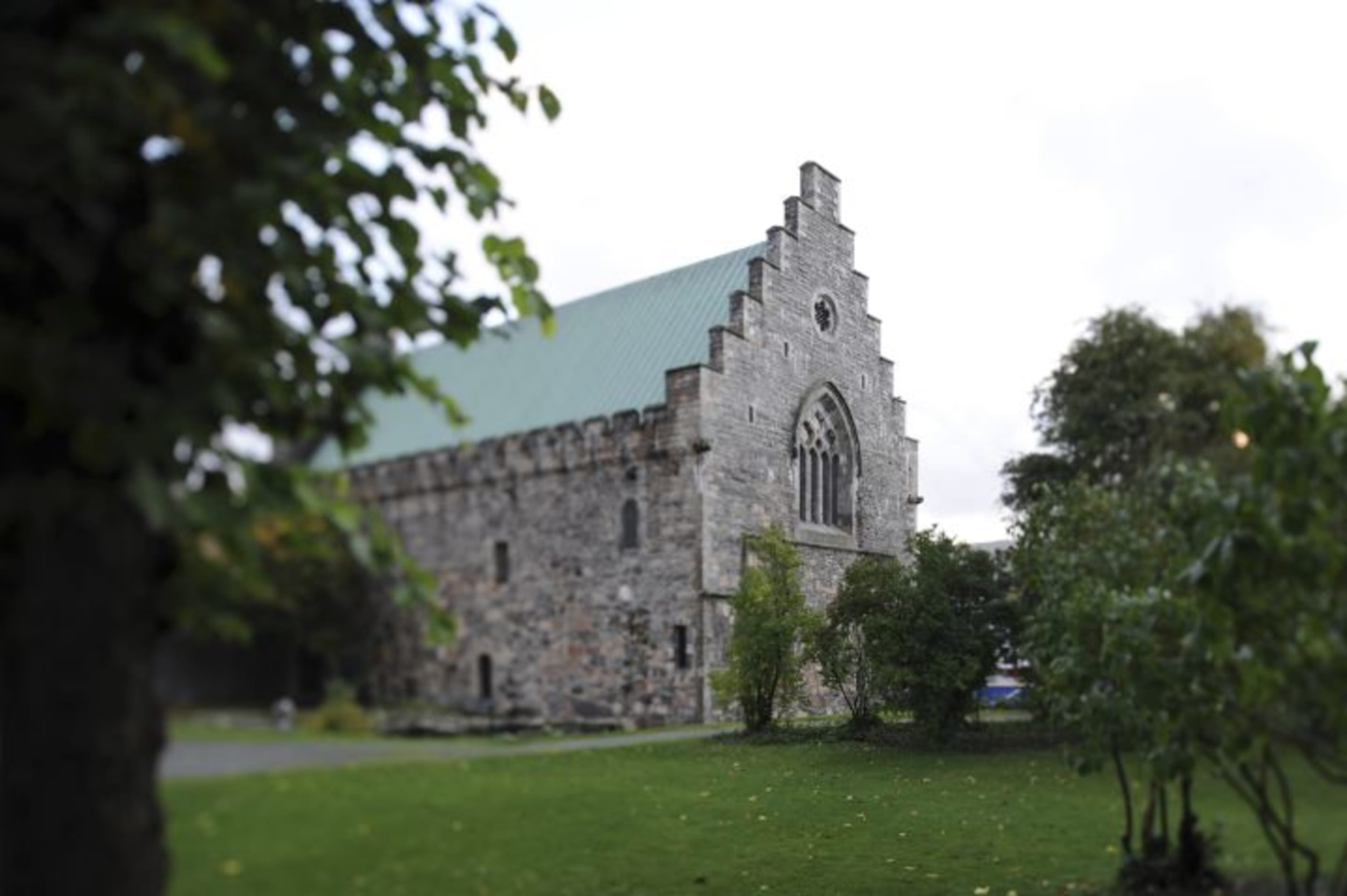
Kirsten Flagstad
with Edvard Grieg Vokalensemble
& Valen vokalensemble
Next event
- Duration:
1 h
Norway's most celebrated soprano of all time was a soloist at the first Bergen International Festival in 1953. Now she’s back.
The career of Kirsten Flagstad (1895–1962) from Hamar, Norway spanned several continents and decades. The soprano captivated audiences at the Metropolitan, La Scala, Covent Garden, and the 1953 Bergen International Festival, and reportedly drew 200,000 spectators to an outdoor concert in Chicago. She was also highly active in the studio, with nearly a thousand recordings preserving her voice.
Cutting-edge new technology enables the extraction of a clean vocal stem from existing studio recordings, and the soloist for this unconventional concert is none other than Kirsten Flagstad. The programme features her iconic recordings of works by Grieg, Händel, Purcell, and Wagner, triggered phrase by phrase from the mixing console.
The 16 professional singers from the Edvard Grieg Vocal Ensemble and the Valen Vocal Ensemble will perform a cappella accompaniments to the original recordings, allowing today's audience to experience Kirsten Flagstad's legendary voice in a new, innovative and sonically immersive way.
'This needs to be heard to be believed, but it’s almost like having the great Norwegian soprano live in the room with us with the other singers,' says Stephen Higgins, the project’s musical director and initiator, alongside sound designer Max Pappenheim.
Photo: Kirsten Flagstad Museum
Who was Kirsten Flagstad?
Thursday 22 & Friday 23 May at 18:30–19:10 in Håkonshallen. Doors open at 18:00.
Before the concert on both days, there will be an introductory talk about Kirsten Flagstad’s artistry, global relevance, and legacy. The discussion will trace the journey of Norway’s greatest singer from her humble roots to global fame via Sweden, London and New York’s prestigious Metropolitan Opera.
The panel features Annika E. Engelhart, museum director at the Kirsten Flagstad Museum, conductor Stephen Higgins, and soprano Ingvill Holter from Edvard Grieg Korene.
Entrance: Included in the ticket to the concert on the same day.
Language: The talk will be held in English.
Supported by Fritt Ord
Contributors
Edvard Grieg Vocal ensemble
Valen vocal ensemble
Stephen Higgins conductor, artistic director
Kirsten Flagstad soprano (recorded)
Max Pappenheim sound designer
Music by
Purcell
Händel
Schubert
Wagner
Grieg
Works
Henry Purcell (1659–1695)
From Dido and Aeneas
Dido’s Lament
Final Chorus (With drooping wings)Edvard Grieg (1843–1905)
From 12 Melodies (Vinje Songs), op.33
9. At Rondane
2. Last Spring
From Melodies of the Heart, op. 5
3. I love but thee
From 6 Songs with orchestra, EG 177
1. Solveig’s songFranz Schubert (1797–1828)
Ave Maria, D839, op. 52:6George Frideric Handel (1685–1759)
From Semele, HWV58
O sleep, why dost thou leave me
Fro Serse, HWV40
Ombra mai fuRichard Wagner (1813–1883)
From 5 Gedichte für eine Frauenstimme, WWV91 (texts: Mathilde Wesendonck)
3. Im Treibhaus
5. Traume
Fra Tristan und Isolde, WWV90
LiebestodSchlesisk, trad
Deilig er jorden, text Bernhard S. Ingemann













